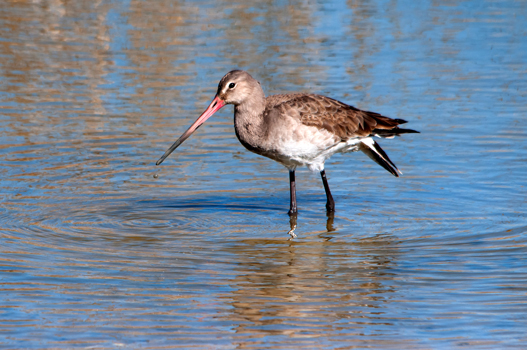Salinization is having a major impact on wetlands and its biota worldwide. Specifically, many migratory animals that rely on wetlands are increasingly exposed to elevated salinity on their nonbreeding grounds. Experimental evidence suggests that physiological challenges associated with increasing salinity may disrupt self-maintenance processes in these species. Nonetheless, the potential role of salinity as a driver of ecological carry-over effects remains unstudied. This study investigated the extent to which the use of saline wetlands during winter – inferred from feather stable isotope values – induces residual effects that carry over and influence physiological traits relevant to fitness in black-tailed godwits Limosa limosa limosa on their northward migration. Overwintering males and females were segregated by wetland salinity in West Africa, with females mostly occupying freshwater wetlands. The use of these wetlands along a gradient of salinities was associated with differences in immune responsiveness to phytohaemagglutinin and sized-corrected body mass in godwits staging in southern Europe during northward migration – 3,000?km from the nonbreeding grounds – but in males only. Indeed, males that used more saline wetlands in winter arrived at staging sites in poorer body condition than males that used freshwater wetlands. These findings provide a window onto the processes by which wetland salinity can induce carry-over effects and can help predict how migratory species should respond to future climate-induced increases in salinity. informacion[at]ebd.csic. Masero et al (2017) Wetland salinity induces sex-dependent carry-over effects on the individual performance of a long-distance migrant. Sci Rep 7: 6867 DOI 10.1038/s41598-017-07258-w
https://www.nature.com/articles/s41598-017-07258-w

 Las altas temperaturas están provocando que las lagunas y las marismas de Doñana pierdan agua rápidamente
Las altas temperaturas están provocando que las lagunas y las marismas de Doñana pierdan agua rápidamente




